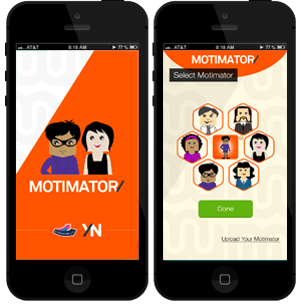How to write a cover letter
We all know that you need a CV to bag a job but what about a cover letter? It’ll be the first thing employers will see, so it's vital you get it right. That letter is essentially an overview of the skills you have that are relevant for the job you’re applying to. Here's how to write a cover letter that’ll be sure to knock potential-employers' socks off.

What is a cover letter?
So what is a cover letter anyway? It’s an essential part of the job search. The letter is your chance to convey some basic information – what position and/or job you’re applying for, who you are, why you want that specific job and what you have to offer. Problem is, all of that has to be condensed into a single page. Basically, it’s meant to tempt the employer to find out more about you and pay attention to your CV.
If you’re applying by email, you can write it in the body of an email or as an attachment; if you’re applying by post, send it as a printed letter. Either way, it’s worth bearing in mind that employers are usually looking for two things. Firstly, they want someone who can do the job. Pretty standard. Secondly, they want someone who actually wants to do the job – this enthusiasm is exactly what your covering letter can help to show-off.
How long should a cover letter be?
This isn’t a piece of string. There’s a pretty hard and fast cover letter format. It shouldn’t be more than a single page, but also no less than a couple of paragraphs. Essentially, it needs to be enough to give your potential employer a brief overview of what you’re about without taking up too much of their time.
If you want some more concrete ideas, just google. Type in terms like good cover letter examples, cover letter layout, or even cover letter template. Just bear in mind that the ‘perfect’ cover letter doesn’t really exist.
How to start a cover letter
If you’re writing in letter form (attachment or printed), it’s best to treat it as a formal letter: Put your name and address in the top right-hand corner, the employer’s name and address on the left-hand side, and a date below on the left or right.
On the other hand, if you’re typing directly into an email and don’t know who you’re speaking to directly, ‘to whom it may concern’ is a professional way to begin. If you know the name of the person (usually hiring managers) then ‘Dear (name)’ is better. We’d recommend trying to go with option number two as often as possible; it shows you’ve spent some time researching the company and can pay attention to detail. With that in mind, you should probably avoid addressing your letter to ‘Dear Sir/Madam’ at all costs.
How to write a cover letter and what to include in a cover letter
- In the first paragraph, state what you’re applying for, where/how you saw the job advert, and give an overview of why you’re applying for it.
- Read the job specification for the position you’re applying for beforehand. Then, write clearly and concisely to show that you have the necessary skills and work experience. Avoid replicating your CV, but refer to it where appropriate.
- Explain why you have an interest in the role. For example, it gives you a challenge, that it fits with your career goals, or that it’s in an area that interests you. Whatever the case may be, if you have hobbies or previous experience related to the role, state them.
- If there are practical reasons for changing jobs, e.g. you have just had a child and need more flexible hours, you shouldn’t bring them up here – there’ll be plenty of opportunity for that if you get an interview.
- Make sure you say what you’ve attached along with the letter (your CV, a test or any work you are asked to submit).
How to sign off a cover letter in the UK
Now that we’ve gotten through how to write a cover letter, the hard part is over. All you have to do is figure out how to end a cover letter.
The best way to sign it off is with a simple ‘Yours sincerely’. Don’t overthink it and end up going with ‘cheerio’ to sign off a UK cover letter. Before sending it off, do a final check to make sure you’ve included your contact details on all the documents you send and on your email. That way someone can call you if they want you to come for an interview.
For more info, you might also like to check out our article on the best ways to contact an employer here.
Next Steps
- Young Women's Trust offer a free telephone and online coaching service for women aged 18-30 to help with anything from work, life or building confidence. You can also get free advice on your CV or job application. Call 0808 808 8099.
- Chat about this subject on our Discussion Boards.
By Nishika Melwani
Updated on 01-Jun-2022
No featured article














